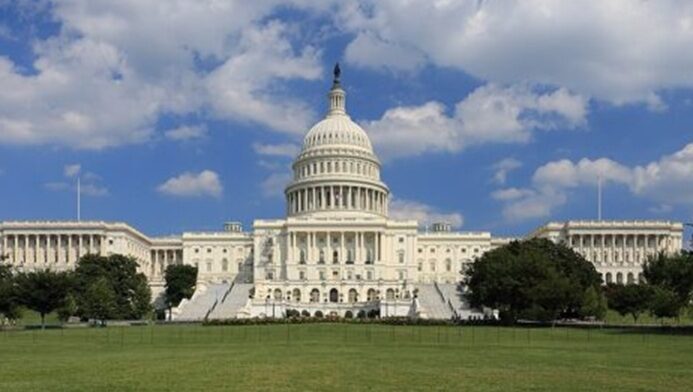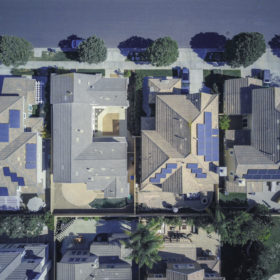The carcass of SunEdison is still fresh on the ground, but a gathering of some of the solar world’s largest firms has already begun circling overhead.
This week the industry learned that Chinese polysilicon and PV manufacturer GCL-Poly will buy three of SunEdison’s manufacturing businesses that are concerned with polysilicon and cell production.
The price agreed – $150 million – will do little to sate SunEdison’s voracious creditors, but the deal does leave GCL-Poly in a rather healthy spot, and is likely to see the firm build upon its global dominance of the polysilicon sector.
The bankruptcy of SunEdison and the carving up of its empire has not been without consequence for its two yieldcos, TerraForm Power and TerraForm Global, particularly given the strong financial and operational connections between SunEdison and the two companies.
One of the consequences of the financial chaos resulting from the collapse of SunEdison has been a substantial delay in the filing of quarterly results from both TerraForm Power and TerraForm Global.
Over the past few days both companies have announced agreements that will allow TerraForm Power and Global to keep key executives if they are laid off by SunEdison. This includes Rebecca Cranna, who servers as executive VP and Chief Financial Officer of TerraForm Power and Global, Sebastian Deschler, Senior VP, General Counsel and Secretary of TerraForm Power and Yanna Kravtsova, who fills the same roles at TerraForm Global.
Additionally, TerraForm Global has announced the departure of Ismael Guerrero Arias, president and head of originations.
TerraForm Power has also increased the interest on certain bonds due 2023 and 2025, after securing an agreement from bondholders that consents to the further delay of financial filings, including the company’s 2015 results, to December 6th.
SunEdison’s dramatic and speedy demise was not unprecedented in the harsh world of solar, which is something that has probably been at the back of Elon Musk’s mind during the takeover bid by Tesla of SolarCity. Once a poster child of American ingenuity and can-do attitude, SolarCity’s recent struggles – miniscule compared to SunEdison’s, of course – have spurred Musk into action, so it was probably unwelcome news for the entrepreneur to hear this week that the investment bank that advised SolarCity on its sale to Tesla, Lazard Ltd, double-counted some of the company’s projected indebtedness, resulting in a $400 million undervaluation.
At what first seems like a fairly significant $400 million mistake in the $2.6 billion purchase of U.S. solar PV company SolarCity by Tesla Motors has not affected the deal between the two companies, which is due to go ahead as planned. However, the SEC filing also revealed that Tesla CEO Elon Musk first suggested the merger to his cousin, and SolarCity CEO, Lyndon Rive in February 2016, which could add to a certain level of suspicion from Tesla shareholders over the acquisition.
Tesla’s regulatory filing showed that Lazard double-counted $400 million of the company’s projected indebtedness under its revolving credit facility, which led to an equity value of between $14.75 and $34.00 per SolarCity share. However, with this extra $400 million of debt taken away from the company, the real valuation range should be $18.75 to $37.75 per share.
Meanwhile, in New York, the average price of solar PV in the state fell to $1.97/watt after incentives, according to a study by Solar to the People. Similar to Solar to the People’s study of California, there are significant differences in costs depending on location. The average PV system on Long Island cost over $21,000 after incentives, whereas the average system in and around the city of Watertown in upstate New York was almost half of that at $11,700.
Watertown also paid the lowest amount on a per-watt basis at only $1.41 per watt, compared to New York City, which had the highest costs at $2.46 per watt.
And finally, a Florida initiative to exempt solar from property taxes passed by a wide margin in what is a first step towards lifting significant obstacles standing in the way of solar in the Sunshine State.
This content is protected by copyright and may not be reused. If you want to cooperate with us and would like to reuse some of our content, please contact: editors@pv-magazine.com.








By submitting this form you agree to pv magazine using your data for the purposes of publishing your comment.
Your personal data will only be disclosed or otherwise transmitted to third parties for the purposes of spam filtering or if this is necessary for technical maintenance of the website. Any other transfer to third parties will not take place unless this is justified on the basis of applicable data protection regulations or if pv magazine is legally obliged to do so.
You may revoke this consent at any time with effect for the future, in which case your personal data will be deleted immediately. Otherwise, your data will be deleted if pv magazine has processed your request or the purpose of data storage is fulfilled.
Further information on data privacy can be found in our Data Protection Policy.